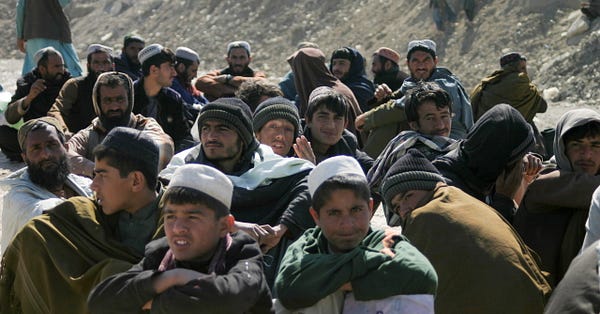It seems only yesterday that the guys in charge in Islamabad were high-fiving and congratulating themselves on their guile. They had played a double game with the United States in Afghanistan for twenty years and finally won. Joe Biden was slinking away. Afghanistan would be a client state of Pakistan and a useful ally in the contest with India for supremacy in South Asia.
Only a matter of months later that whole strategy doesn’t seem so clever. The Pakistani Taliban have declared war on Islamabad and promised to wage jihad until Islamabad is the capital of a new Islamic Emirate. The Taliban in Afghanistan and Pakistan have formally united under one banner.
And this is not just ‘talk’ or posturing. Things are heating up. People are dying. A full-scale war may be in the offing.
Cross-border attacks from Afghanistan have escalated dramatically. Pakistan’s Foreign Ministry has admitted that the attacks are targeting Pakistani security forces and are being launched from bases inside Afghanistan.
On April 14, seven Pakistani soldiers were killed in the border area of North Waziristan. According to a Pakistani military statement, a Pakistani military convoy near the Afghan border was ambushed, triggering an intense shoot-out in which seven soldiers and four members of the armed group were killed.
Days ago, the Pakistanis responded with force. They fired rockets at targets inside Afghanistan and launched air strikes as well. According to some reports, at least one drone was also used by the Pakistanis and the targets inside Afghanistan were Taliban commanders.
The Taliban responded to the Pakistani attacks by summoning Pakistan’s ambassador to Kabul to protest. On April 17, Shabir Ahmad Osmani, director of information and culture in the Afghan province of Khost, told AFP that “41 civilians, mainly women, and children, were killed and 22 others were wounded in airstrikes by Pakistani forces near the Durand line in Khost Province.” The death toll is expected to climb.


So far this year, 155 people have been killed in Taliban attacks in Pakistan, compared with 68 last year.
The Taliban deny harboring Pakistani armed fighters but are also enraged by a fence Islamabad is erecting along the two countries’ 2,700km (1,680-mile) shared border.
Pakistan’s military said last week that 128 armed fighters have been killed in the region bordering Afghanistan since January. During the same period, the Pakistanis acknowledged losing 100 soldiers in confrontations with armed militants.

All parties claim they want an end to the fighting, but the rhetoric continues to escalate.
"We want to tell the Pakistani army that every war has a principle and Pakistan has violated every principle of war up to date. We challenge the Pakistan army to fight us in the battlefield instead of bombing oppressed people and refugee camps," the media quoted Pakistani Taliban spokesman Muhammad Khurasani as saying on Saturday.
“The defeat of the United States eight months ago was a good lesson to aggressors who want to disrespect Afghanistan’s territory and freedom,” Taliban Deputy Information Minister Zabihullah Mujahid said just days ago.
The Pakistanis for their part seem to think that they can ramp up the pressure on Kabul and compel the Taliban there to control their allies in the Pakistani Taliban. The success of that strategy seems doubtful. The new rulers in Kabul are riding high, flush with all the weapons they can use and dedicated to jihad. Islamabad may have thought the holy warriors in Kabul would compromise and settle for coexistence. That does not seem to be in the cards at all.
“The idea that the Taliban would rein in TTP (Pakistani Taliban) strikes me as a delusion,” said Gautam Mukhopadhaya, a former Indian ambassador to Afghanistan, Syria, and Myanmar and a senior visiting fellow at New Delhi-based research group the Centre for Policy Research recently. “Ties of blood and belief are thicker than marriages of conveniences.”

The Pashtuns at the heart of the Taliban in both Afghanistan and Pakistan view themselves as one people. They have never really recognized the border between Afghanistan and Pakistan anyway. They are also united by their dedication to the waging of war to spread the Islamic faith. Pakistan may have been a useful ally in the war against America. Now it is just the next target.
The Pakistanis are learning what will prove to be a very painful lesson. When you play with matches you get burned, and it is Islamabad’s turn to get torched.





Query whether we are approaching an Archduke Ferdinand moment ... or if we have already had it?